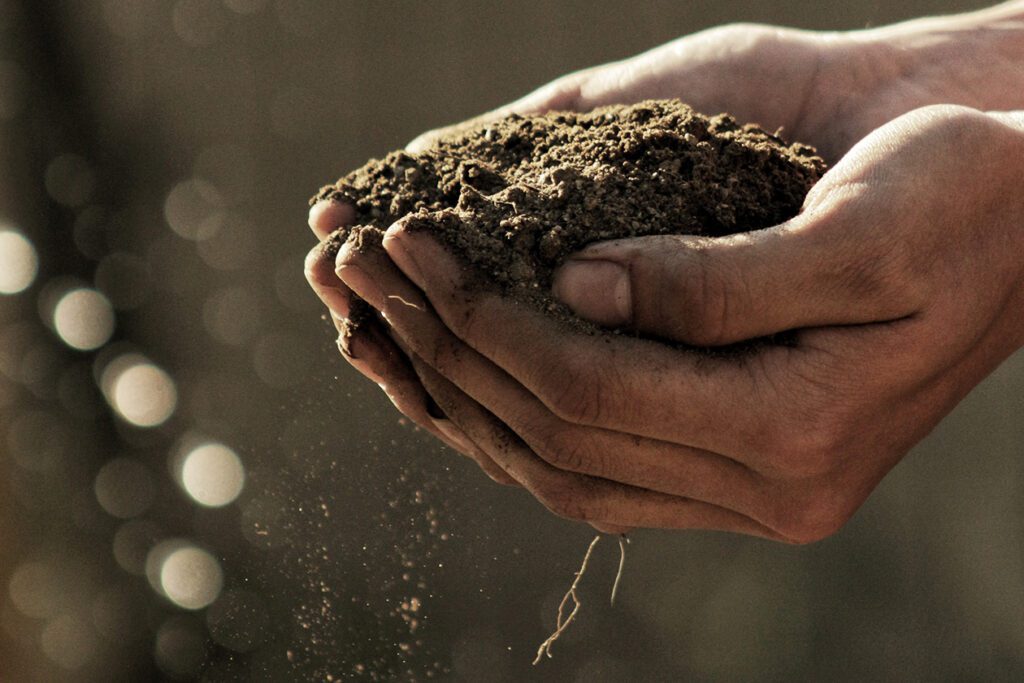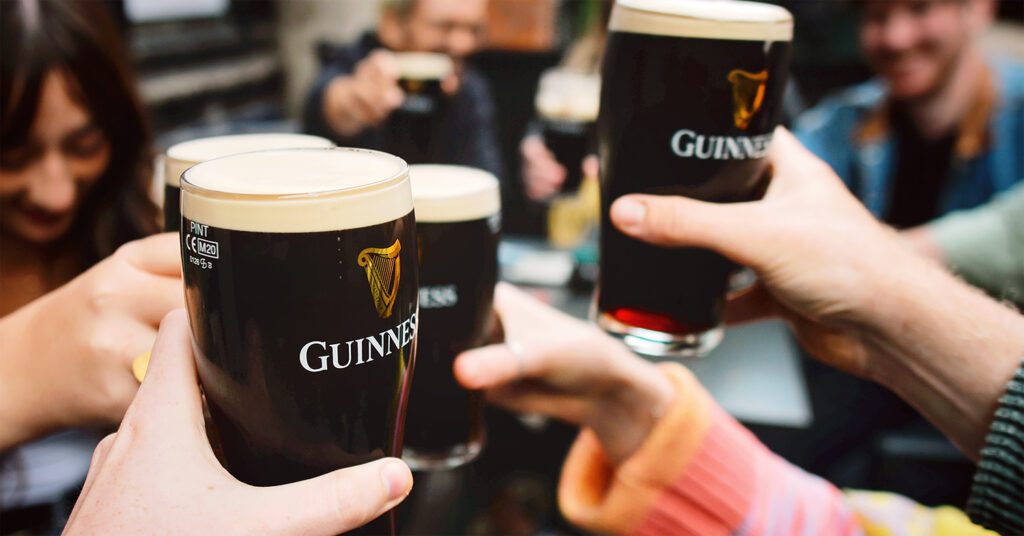Guinness fans could soon be supporting sustainability with every pint of the “black stuff” poured.
Parent company Diageo just announced the start of a three-year pilot program to cut carbon emissions emitted during the production of Guinness by changing the way its primary ingredient, barley, is farmed. The project aims to partner with at least 40 farms across Ireland, employing regenerative agricultural techniques throughout the coming season.
Guinness is one of the most recognizable beverages in the world, thanks to its dark pour, cream-colored foam, and distinctive, almost chocolatey flavor. It uses approximately 130,000 tons of barley per year to brew its Irish dry stout, and Diageo predicts that almost all of the grain produced during the pilot period will be used for Guinness alone.
The company notes that the new program will drive “positive outcomes,” for the environment, for the agricultural workers it partners with, and for the industry at large.
“This pilot is the first such program being implemented by Diageo and the outcomes will help inform other potential opportunities, not just in Ireland, but in other countries where we source raw materials,” says Diageo Europe President John Kennedy. “We are only 263 years into our 9,000-year lease and we will never settle in pursuit of a more sustainable future.”

‘Regenerative agriculture leads to much better outcomes’
So what is regenerative agriculture? This is a catch-all term that can be used to describe everything from increased crop diversity to no-till farming. Overall, “regenerative” refers to farming practices that benefit the soil, crops, the ecosystem, and the planet.
These techniques are typically employed holistically to work in conjunction with the needs of the natural environment, rather than in opposition to them—as is all-too-often often the case within large-scale commercial operations and mainstream, monoculture farming.
In this instance, Diageo’s specific goals include enhanced biodiversity, reduction in synthetic fertilizers, enhanced water quality, soil health improvements, increased carbon sequestration; and improved farmer livelihoods. (Regenerative practices are generally thought to be more profitable, better for the longevity of the land, and more cost-effective for farmers overall.)
“The great thing about regenerative agriculture is the simplicity of the approach. It’s not a complicated process—it works in harmony with nature whilst providing a commercial benefit for farmers,” explains Walter Furlong Junior, one of the agricultural workers involved in the pilot. “It is a highly effective approach that leads to much better outcomes.”

Guinness embraces sustainability
Cutting out synthetic fertilizers alone will be a significant step towards achieving all of Diageo’s goals above. Studies show that many artificial pesticides produce emissions, harm wildlife, harm the soil, and create additional expenses for the farmers themselves.
But in the second phase of the project, Diageo is also considering the planting of hedgerows—a proven boon for ecosystems—to further boost carbon sequestration and biodiversity. The company hopes that many more farmers will choose to take part following the conclusion of the pilot program around April 2023, when the sowing process is complete.
This commitment to emphasize sustainability is part of Diageo’s ongoing 10-year action plan, which aims to achieve net-zero carbon emissions across all direct operations and a 50 percent reduction in scope 3 emissions, both by 2030.
As of 2017, all varieties of Guinness have been free from isinglass (a filtering ingredient derived from fish swim bladders), and are therefore vegan-friendly. In 2019, the Irish stout brand announced the removal of unnecessary plastic packaging in the particularly dangerous form of six-pack “yokes.” (Learn more about plastic waste and the environment here.)
Most recently, the brand introduced its first zero emission “Guinness Quality” vans, which it will be rolling out this summer. Guinness simultaneously revealed plans to make 70 percent of its fleet zero emissions by 2025 and 100 percent by 2030.


